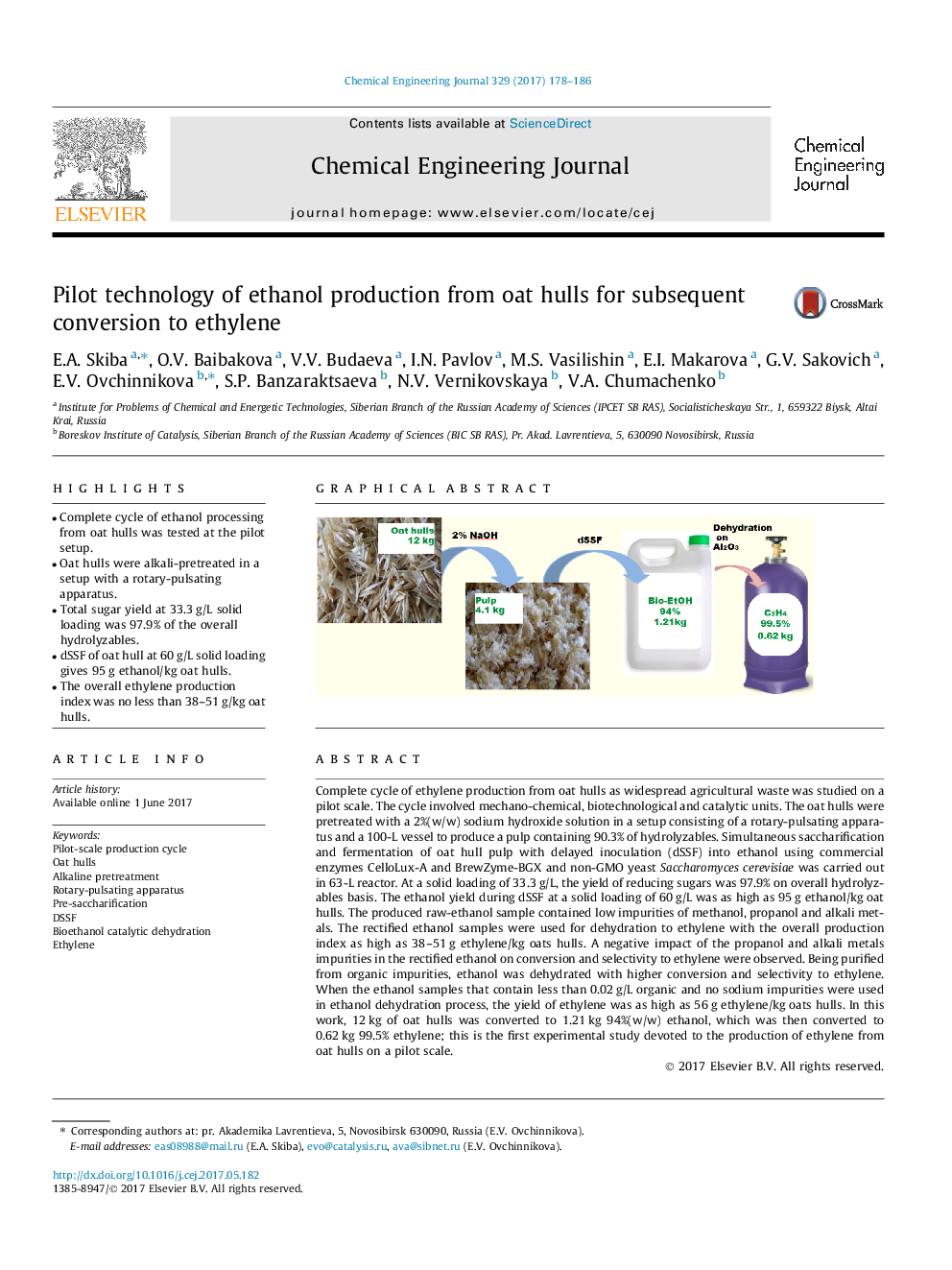| کد مقاله | کد نشریه | سال انتشار | مقاله انگلیسی | نسخه تمام متن |
|---|---|---|---|---|
| 6465406 | 1422949 | 2017 | 9 صفحه PDF | دانلود رایگان |
- Complete cycle of ethanol processing from oat hulls was tested at the pilot setup.
- Oat hulls were alkali-pretreated in a setup with a rotary-pulsating apparatus.
- Total sugar yield at 33.3Â g/L solid loading was 97.9% of the overall hydrolyzables.
- dSSF of oat hull at 60Â g/L solid loading gives 95Â g ethanol/kg oat hulls.
- The overall ethylene production index was no less than 38-51Â g/kg oat hulls.
Complete cycle of ethylene production from oat hulls as widespread agricultural waste was studied on a pilot scale. The cycle involved mechano-chemical, biotechnological and catalytic units. The oat hulls were pretreated with a 2%(w/w) sodium hydroxide solution in a setup consisting of a rotary-pulsating apparatus and a 100-L vessel to produce a pulp containing 90.3% of hydrolyzables. Simultaneous saccharification and fermentation of oat hull pulp with delayed inoculation (dSSF) into ethanol using commercial enzymes CelloLux-A and BrewZyme-BGX and non-GMO yeast Saccharomyces cerevisiae was carried out in 63-L reactor. At a solid loading of 33.3Â g/L, the yield of reducing sugars was 97.9% on overall hydrolyzables basis. The ethanol yield during dSSF at a solid loading of 60Â g/L was as high as 95Â g ethanol/kg oat hulls. The produced raw-ethanol sample contained low impurities of methanol, propanol and alkali metals. The rectified ethanol samples were used for dehydration to ethylene with the overall production index as high as 38-51Â g ethylene/kg oats hulls. A negative impact of the propanol and alkali metals impurities in the rectified ethanol on conversion and selectivity to ethylene were observed. Being purified from organic impurities, ethanol was dehydrated with higher conversion and selectivity to ethylene. When the ethanol samples that contain less than 0.02Â g/L organic and no sodium impurities were used in ethanol dehydration process, the yield of ethylene was as high as 56Â g ethylene/kg oats hulls. In this work, 12Â kg of oat hulls was converted to 1.21Â kg 94%(w/w) ethanol, which was then converted to 0.62Â kg 99.5% ethylene; this is the first experimental study devoted to the production of ethylene from oat hulls on a pilot scale.
90
Journal: Chemical Engineering Journal - Volume 329, 1 December 2017, Pages 178-186
